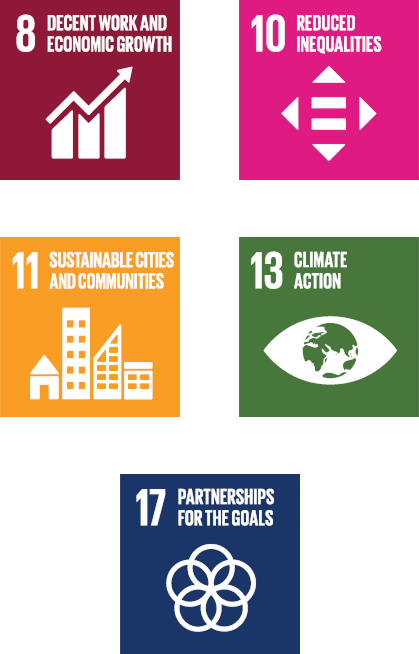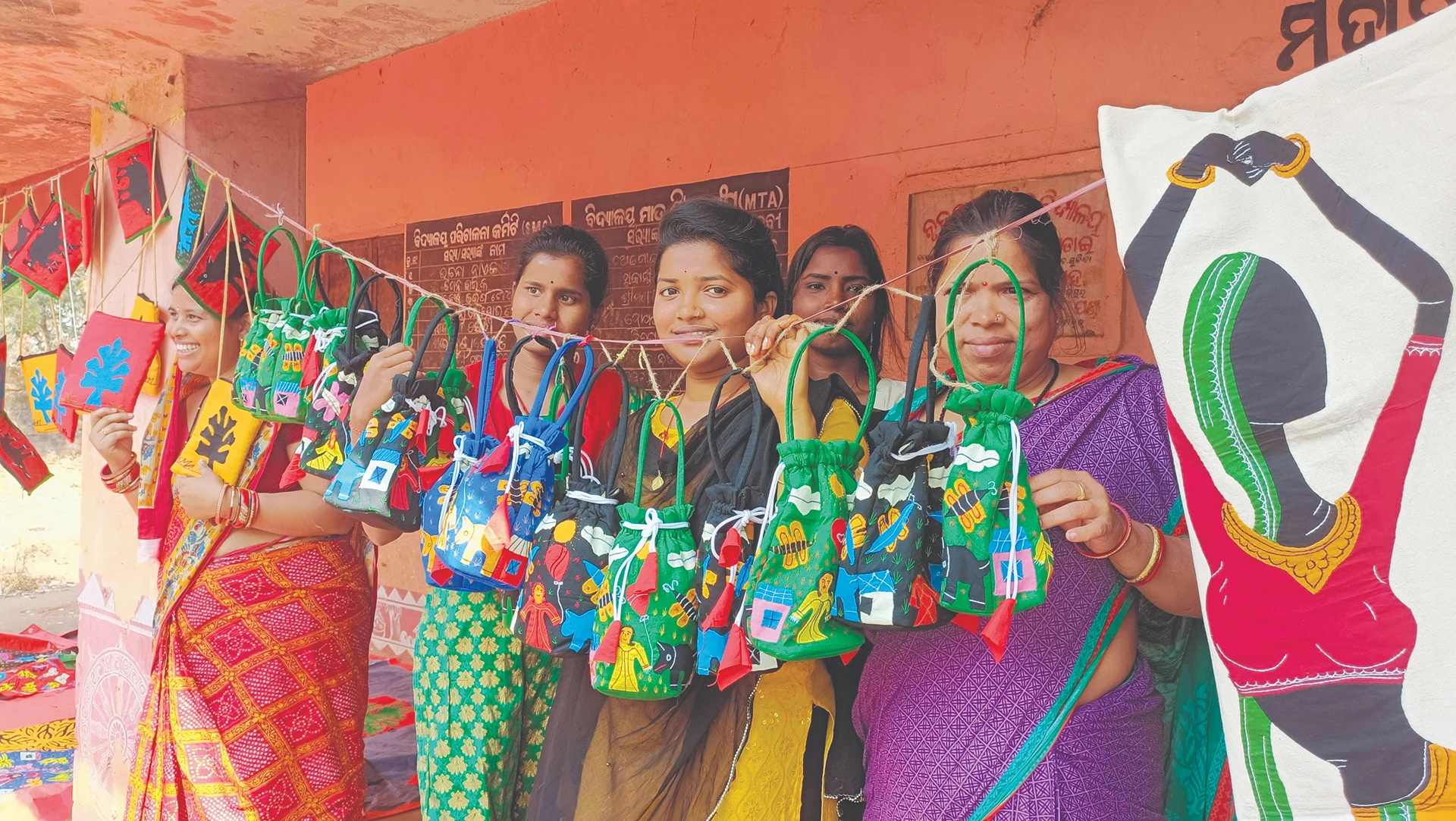Interplay of Capitals


Policies
SDGs


Jindal Stainless believes that its collective success is inextricably linked to the strength and depth of its social and relationship capital. This vital asset extends far beyond transactional exchanges, encompassing the intricate web of trust and mutual respect the company cultivates with its diverse stakeholders: the communities where JSL operates, its valued customers, its reliable suppliers, and its crucial civil society partners. It is this robust social fabric that underpins the company’s long- term value creation and cements its licence to operate.
Simultaneously, JSL recognises that true trust is not merely forged through consistent performance, though that remains a cornerstone of the company’s operations. Rather, it is profoundly earned through an active presence in these relationships, through a genuine empathy for stakeholder needs and challenges, and tangible, proactive contributions to the world.

Supply Chain Management
JSL works closely with its suppliers to build a supply chain that is ethical, responsible, and aligned with its sustainability goals. The company collaborates with over 700 suppliers, supporting them with ESG awareness, training, and compliance guidance to promote responsible sourcing across its operations.
To ensure high standards, suppliers are carefully selected based on their commitment to quality, integrity, competitiveness, and value addition, in line with the company’s Responsible Sourcing Policy. These partnerships are key to improving supply chain resilience and ensuring that ethical and environmental standards are upheld throughout the procurement process.
As part of its Responsible Sourcing Policy, Jindal Stainless upholds a rigorous Supplier Code of Conduct (SCoC), ensuring ethical, safe, and sustainable practices across its supply chain. All suppliers are required to formally commit to the SCoC during onboarding and renew this commitment annually. The code outlines clear expectations in four key areas: ethical business conduct, occupational health and safety, environmental responsibility, and labour and human rights. Suppliers must comply with all applicable laws, maintain safe and hazard-free workplaces, minimise environmental impacts through responsible operations, and uphold fair labour practices – including prohibitions on child and forced labour, non-discrimination, fair wages, and the right to association. To ensure adherence, JSL conducts structured vendor registration, including supplier’s CoC compliance as a contractual requirement, and carries out annual assessments covering 100% of its high-value supplier base. These practices reinforce the company’s commitment to building a transparent, responsible, and resilient supply chain.
JSL recognises that true sustainability extends far beyond its operational boundaries; it is intrinsically linked to the environmental, social, and governance (ESG) performance of the company’s entire value chain. JSL’s approach to supplier ESG integration is therefore comprehensive and dynamic, underpinned by a commitment to foster a network of responsible partners. The company has meticulously developed and implemented a robust programme designed to train and engage over 700 suppliers in adopting best practices for responsible sourcing and sustainable operations. This initiative is fundamental to embedding ethical and lawful conduct, promoting environmental stewardship, and safeguarding human rights across the company’s extended enterprise.
The company’s commitment begins with a stringent Responsible Sourcing Policy, which articulates clear expectations for its suppliers. This policy mandates unwavering adherence to ethical conduct, robust anti-corruption measures, complete transparency, and steadfast respect for human rights, including a zero-tolerance stance on child or forced labour. Complementing this, the company conducts targeted training and engagement sessions to equip its suppliers with the requisite knowledge and tools to elevate their sustainability performance, ensuring alignment with its shared objectives for a greener future.
During the year, JSL conducted four awareness programmes on various sustainability topics covering the nine principles of the National Guidelines on Responsible Business Conduct (NGRBC) through vendor meets and virtual training sessions. The agenda of these programmes was to spread awareness about JSL’s Supplier Code of Conduct, upcoming ESG regulations such as CBAM, BRSR, pre-dispatch inspection, the company’s expectations from the suppliers, grievance redressal mechanism, etc. The company promotes diversity, equity, and inclusion (DEI) within its supply chain by providing targeted training programmes to suppliers focused on DEI principles and best practices. These training sessions help suppliers build awareness, develop inclusive workplace cultures, and implement equitable policies, ensuring that DEI values are embraced throughout the extended workforce. JSL also conducts training for its buyers and internal stakeholders to ensure a clear understanding of their roles and responsibilities within the supplier ESG programmes.
Beyond policy and training, JSL is deeply integrating sustainability across its product lifecycle. This involves meticulously planning for Product Carbon Footprint (PCF) assessments and Environmental Product Declarations (EPDs), providing granular transparency on its environmental impact. Furthermore, by employing tools such as Dependency-Impact Matrices, the company ensures that its supply chain activities are meticulously aligned with biodiversity goals and optimised for resource efficiency. JSL’s commitment to a circular economy through maximising the use of recycled scrap metal and industrial by-products like fly ash and bottom ash, thereby reducing reliance on virgin resources and minimising waste. The company’s broader decarbonisation targets, including the ambition for Net Zero GHG emissions by 2050, are intrinsically supported by these supply chain initiatives, alongside investments in renewable energy and energy conservation.
This holistic approach to supplier ESG integration strengthens the company’s collective resilience and amplifies its positive social impact. By promoting community development and investing in skill-enhancement programmes for local individuals, the company contributes to broader societal well- being. Through these concerted efforts, JSL is not only shaping a more sustainable and responsible stainless steel industry but also fostering long- term value for all its stakeholders.
The Supplier Development Framework employs a comprehensive Supply Chain Screening Tool to enhance ESG (Environmental, Social, and Governance) risk management and supplier criticality assessment. This tool evaluates suppliers using two primary attributes: non-substitutability and ESG risk exposure. Non-substitutability identifies suppliers contributing to a significant portion of cumulative spend, indicating high operational reliance. The ESG Risk Score evaluates suppliers across four key dimensions: policy coverage, sector-specific risks, country-specific risks (including governance quality and exposure to natural disasters), and commodity risks (such as price volatility, supply availability, and material flexibility). Based on predefined thresholds, suppliers are classified into low-, medium-, or high-risk categories. Using this assessment, JSL identifies its critical suppliers, enabling focused risk mitigation and engagement strategies.
To ensure strong internal alignment and effective governance of ESG integration within its supply chain, the company provides periodic updates to the Board of Directors on progress against defined ESG KPIs, such as the number of suppliers assessed and trained. The Board of Directors serves as the highest decision-making body for the company’s supplier ESG programme.
Operational oversight is maintained through regular reporting by the Head of Procurement to the Chief Sustainability Officer, ensuring consistent implementation and advancement of ESG initiatives across the supply chain.
The company’s robust and agile supply chain continues to be a cornerstone of its operational excellence. Its ability to deliver value across complex manufacturing ecosystems was recognised with the ‘Best Supply Chain in Heavy Manufacturing’ award at the 2024 Warehouse & Supply Chain Leadership Awards.
Community Relations
JSL’s role as an industry leader includes not only excellence in stainless steel production but also a deep responsibility to support the holistic well-being and long-term development of surrounding communities. The company’s approach to Corporate Social Responsibility (CSR) is deeply embedded in its ethos, reflecting a commitment to create a lasting positive impact through targeted interventions in key areas such as community development, education, environmental stewardship, health, skill development, and livelihood. The company strives to be a responsible corporate citizen, working collaboratively with local communities to empower them and contribute to their self-reliance.
In FY25, JSL’s CSR programmes benefited 92,000+ individuals in rural and urban communities. These efforts reflect the company’s continued focus on inclusive growth and sustainable community development, driven by partnerships, grassroots engagement, and long-term commitment to improving lives across JSL’s areas of operation.
Stakeholder
Consultation

Planning and Implementation

Monitoring and
Reporting

Impact Measurement and Adaptation

CSR Implementation and Strategy at Jindal Stainless
The company’s CSR initiatives are spearheaded by the Jindal Stainless Foundation, OP Jindal Charitable Trust, and Jindal Stainless Charitable Trust. In collaboration with a broad network of national and international NGOs and civil society organisations, the company implements both direct and third- party projects to ensure meaningful social impact.
The company’s programmes are aligned with Section 135 and Schedule VII of the Companies Act, 2013, and contribute to key focus areas such as rural development, environmental sustainability, women’s empowerment, skill development, preventive healthcare, and disaster response. Additionally, the company integrates the United Nations Sustainable Development Goals (SDGs) into its CSR strategy, supporting global efforts towards inclusive growth and environmental stewardship. JSL follows a structured, needs-based approach that begins with Stakeholder Consultation – engaging local communities, NGOs, civil society, and government bodies to identify specific development priorities. Based on these insights, the company develops comprehensive Planning and Implementation frameworks outlining clear objectives, timelines, and resource allocations. All projects are approved annually by the Board of Directors and disclosed publicly to maintain transparency. The company’s Monitoring and Reporting processes include regular dialogue with stakeholders to assess progress and incorporate feedback. Through Impact Measurement and Adaptation, the company evaluates project outcomes and uses data-driven insights to refine its approach, ensuring sustained relevance and effectiveness.
CSR is a core pillar of JSL’s broader ESG strategy, aimed at delivering long- term social and environmental value. Additionally, the company encourages employee and leadership participation in CSR activities, promoting a culture of engagement and community support. The initiatives are designed to build self-reliant, resilient communities capable of navigating social and economic challenges.

Community Consultation Framework and Implementation
JSL views local communities as essential stakeholders in its sustainability journey. 100% of JSL’s current production assets have undergone community consultation, and at present, do not have any development projects that require community consultation. The approach is built on trust, transparency, and continuous engagement through structured initiatives such as:
- Community Needs Assessments and Baseline Surveys to guide strategic planning
- Perception Studies to align programmes with evolving community expectations
- Impact Assessments and SROI Evaluations to refine and scale initiatives based on measurable outcomes
The company’s local CSR and External Relations teams play a critical role in:
- Identifying social risks and implementing mitigation strategies
- Managing stakeholder grievances and integrating community feedback into operations
- Driving proactive engagement to address concerns, reduce risks, and strengthen stakeholder confidence
This framework ensures JSL’s community development efforts are responsive, inclusive, and impactful.
Strategic Pillars of Community Development
JSL’s CSR initiatives are structured around strategic pillars designed to address pressing societal needs and build resilient communities:
Education:
The company recognises education as the cornerstone of empowerment and progress and strives to create inclusive, equitable, and quality learning opportunities that enable individuals to reach their full potential and contribute meaningfully to society.
Environment:
Beyond core operational environmental commitments, JSL’s CSR extends to broader ecological initiatives within communities.
Healthcare and Sanitation:
Promoting community health and hygiene is a fundamental aspect of JSL’s social commitment.
Promoting Sports and Culture:
The company encourages the development of local talent and preserves cultural heritage.
Skill Development and Livelihood:
The company encourages the development of local talent and preserves cultural heritage.
For instance, JSL supports the Stainless Steel Fabrication course at Government Polytechnic Jajpur, where students gain hands-on experience in a specially designed lab, along with industry exposure and professional guidance from its expert employees.
Through initiatives like Asmita Skill Training in Hisar and Jajpur, the company provides vocational training to women in garment manufacturing and tailoring. The Asmita Production Centre has evolved into a successful women-led enterprise, producing safety jackets, college uniforms, masks, and women's garments.
In Odisha, the Asmita Appliqué programme trains rural women in the traditional Pipli craft to create contemporary products that blend heritage with modern design. These programmes enable women to start tailoring businesses, open boutiques, or join manufacturing units – promoting sustainable livelihoods and cultural heritage.
Jindal Stainless Launches ‘ज़ंग Warrior’ Campaign to Battle Social Issues
On June 12, 2025, World Day Against Child Labour Day, JSL launched the ‘ज़ंंग (Corrosion) Warrior’ campaign that spotlights the role of skill development in addressing deep-rooted social issues. As part of the Jindal Saathi 5.0 initiative, the campaign showcases the impact of the Stainless Academy, which offers free fabrication training to fabricators across India. Three short films highlight stories of individuals overcoming gender inequality, child labour, and social exclusion through vocational training. The first film presents how women break gender barriers in the fabrication industry. The second underlines the connection between skill-building and ensuring children’s education by empowering earning members. The third focuses on social acceptance gained by individuals from underprivileged communities through technical training. So far, over 50,000 fabricators have benefited from the programme. The campaign draws a parallel between the corrosion resistance of stainless steel and the fight against societal corrosion through education and empowerment. The campaign echoes the inherent nature of stainless steel – resistance to corrosion (ज़ंंग) – and the company’s commitment to fighting the societal ज़ंंग, or the societal evils. Beyond technical skills, the videos underpin the broader implication of the fabrication training programme – social empowerment. The video series ends with a compelling call to action and a message of hope, highlighting the importance of collective effort and the transformative power of skill development & community empowerment, respectively. Above all, JSL is invested in fabricator growth and quality of life through upskilling to build a more resilient and skilled downstream ecosystem.
‘ज़ंग Warrior’ – Part of the Jindal Saathi 5.0 initiative
- Three Powerful Videos on Strength, Skill, and Social Change via the Stainless Academy
-
Each video spotlights key social issues: Gender Inequality, Child Labour,
and Social Injustice
- First Video: Empowering women through fabrication training for economic independence and breaking gender norms
- Second Video: Combatting child labour by equipping fabricators to secure their families’ future and support their children’s education
- Third Video: Transforming the lives of individuals from underprivileged backgrounds through skill development and social acceptance

Strengthening Customer Relationships
Through
Proactive Engagement
JSL fosters strong, mutually beneficial relationships with its customers through consistent, multi-channel engagements. Regular customer meetings and formal satisfaction surveys ensure the company stays aligned with evolving customer expectations, particularly around timely delivery, product quality, competitive pricing, and availability.
In FY25, 100% of JSL’s customers participated in the satisfaction survey, with 86% expressing satisfaction with the company’s services. Zero data privacy breaches during the year further reflect the company’s commitment to trust and transparency. These insights not only guide the development of sustainable solutions but also reinforce JSL’s dedication to innovation and environmental stewardship. engagement and community support. The initiatives are designed to build self-reliant, resilient communities capable of navigating social and economic challenges.
Engagements with Investors, Government Bodies
and
Industry Associations
JSL maintains active and transparent engagement with its investors through regular investor presentations, meetings, and public advocacy. The company closely collaborates with key ministries such as the Ministry of Steel (MoS) and the Ministry of New and Renewable Energy (MNRE), as well as with leading industry associations, to align its strategic direction with national priorities. The company’s investor communications cover a wide range of topics, including industry and business outlook, company performance, and responses to investor concerns and queries.
Metal of
Modernity:
Blending Heritage and
Tradition at NCPA
Jindal Stainless participated in the Architecture & Design Film Festival (ADFF: STIR Mumbai) as a pavilion partner, marking the South Asian debut of the globally-acclaimed event. The event – held at the National Centre for the Performing Arts (NCPA), Mumbai, from January 10 to 12, 2025 – facilitated a dynamic blend of global architecture, design, and cinematic narratives to inspire and engage minds. It displayed the transformative potential of stainless steel through a distinct pavilion installation.
The installation was conceptualised in collaboration with SHROFFLEÓN – a Mumbai-based, award-winning design studio renowned for designing high-end residential and commercial architecture and interiors. Inspired by the traditional Indian Baoli (stepwell), the installation displayed a blend of heritage and modernity, underpinning stainless steel’s versatility and aesthetic appeal as a creative medium.
Furthermore, the pavilion – a monolithic, mirror-finish stainless steel structure – embodied JSL’s commitment to sustainability, innovation, and timeless design. With a seamless fusion of tangible and intangible elements, the structure rendered a reflective and immersive experience. Moreover, stainless steel’s inherent durability, corrosion resistance, and versatility facilitated intricate craftsmanship, making it the material of choice for the installation. The pavilion brought to life an eco-friendly vision of architectural excellence.

Public Advocacy
As a responsible industry leader, the company’s engagement extends beyond operational excellence to actively shaping public policy and industrial discourse. JSL believes that fostering a progressive regulatory ecosystem is vital for long-term national and industrial growth and views policy advocacy as an essential lever to advance sustainability, innovation, and competitiveness.
JSL contributes meaningfully to national policymaking through ongoing dialogue with government and regulatory bodies. Key areas of engagement include:
- Developing a taxonomy for green steel
- Promoting demand for sustainable steel solutions
- Advocating for carbon emissions monitoring and faster renewable energy adoption
- Participating in discussions on the Carbon Border Adjustment Mechanism (CBAM) to align with India’s climate commitments
- Supporting trade remedial measures to protect the domestic industry
- Contributing insights during Free Trade Agreement (FTA) negotiations to ensure balanced outcomes
- Championing the alignment of public procurement policies with the ‘Make in India’ initiative
JSL’s collaborative work with industry bodies such as the Confederation of Indian Industry (CII), Federation of Indian Chambers of Commerce and Industry (FICCI), and Indian Stainless Steel Development Association (ISSDA) plays a pivotal role in promoting sustainable manufacturing, decarbonisation, and corrosion mitigation. The company regularly leads and supports awareness campaigns, workshops, and policy dialogues that promote stainless steel as a sustainable, long-life solution for infrastructure and industry. Internationally, JSL engages in bilateral partnerships and global climate forums, sharing expertise and contributing to the decarbonisation of the global steel sector. The company’s participation in platforms such as Responsible Steel reflects its commitment to aligning with global sustainability benchmarks.
In FY25, JSL invested over INR 1.31 crore in these partnerships and memberships, reinforcing its collective advocacy toward shaping an industrial future that is both inclusive and sustainable.

Jindal Stainless has renewed its membership with the UN Global Compact, reaffirming its commitment to responsible and sustainable business practices.
The complete list of JSL’s expenditure is given below:
| Sl. No. | Trade and Industry Chambers/Associations | Membership Fees (INR) |
|---|---|---|
| 1 | Confederation of Indian Industry (CII) | 3,79,500 |
| 2 | Federation of Indian Chambers of Commerce and Industry (FICCI) | 7,00,000 |
| 3 | The Associated Chambers of Commerce & Industry of India (ASSOCHAM) | 4,50,000 |
| 4 | PHD Chamber of Commerce and Industry (PHDCCI) | 1,50,000 |
| 5 | Indian Chambers of Commerce (ICC) | 70,000 |
| 6 | Indian Steel Association (ISA) | 5,00,000 |
| 7 | Indian Stainless Steel Development Association (ISSDA) | 88,19,000 |
| 8 | Steel Furnace Association of India | 8,00,000 |
| 9 | The Alloy Steel Producers Association of India | 2,00,000 |
| 10 | Utkal Chamber of Commerce & Industry (UCCI) | 57,466 |
| 11 | Society of Indian Defence | 3,50,000 |
| 12 | Indian Iron and Steel Sector | 2,00,000 |
| 13 | Responsible Steel Membership | 17,24,381 |
| Total | 1,31,00,360 | |
Environmental Advocacy
In October 2024, Managing Director Abhyuday Jindal was elected President of the Indian Chamber of Commerce (ICC), following his tenure as Senior Vice President from October 2023 to October 2024.

Framework Development
for Green Steel
JSL contributed to the Ministry of Steel’s creation of a green steel taxonomy, advancing sustainable practices, emissions monitoring, and renewable energy adoption to align the industry with decarbonisation goals.
Carbon Credit
Trading
Scheme (CCTS)
Framework
By collaborating with the Bureau of Energy Efficiency (BEE) and nominating senior experts, JSL influenced the technical framework of CCTS, ensuring alignment with India’s commitments under the Paris Agreement.
Collaboration with
Trade
Associations
In partnership with FICCI, CII, and ISSDA, JSL actively advocated for decarbonisation, renewable energy adoption, and sustainable manufacturing, strengthening industry representation in policymaking.

